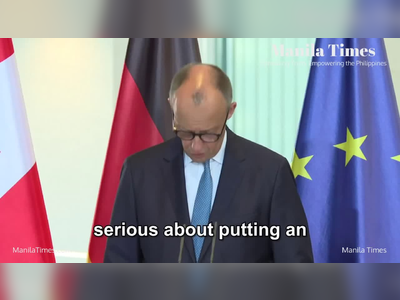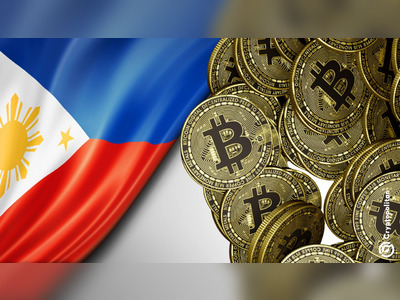Manila Times
Upholding Truth. Empowering the Philippines
Wednesday, Aug 27, 2025
The Nation's Story is Told with Honor
The Porn Remains, Privacy Disappears: How Britain Broke the Internet in Ten Days
Britain’s new age verification rules under the Online Safety Act sparked privacy concerns, mass VPN use, and access restrictions, while failing to prevent children from exposure to harmful content.
The new "age verification" regulations under Britain’s Online Safety Act came into effect a week and a half ago, requiring users attempting to access certain services or content to provide full identification, either through official documents or AI systems verifying age via selfie.
The results are what experts had warned against: an unprecedented attack on user privacy, suppression of access to information, and unworkable technological enforcement, providing only weak protection for children.
For years, regulators worldwide have sought solutions to shield minors from harmful online spaces.
The internet remains filled with risks—from violent videos and drug sales on messaging apps to scams on social media and widespread access to pornography.
While restricting children’s access has long been seen as necessary, past attempts have consistently failed because the restrictions were easy to bypass.
Britain’s attempt sought to solve multiple problems at once.
Unlike restrictive regimes such as China and Iran, the UK is a liberal democracy, making its experiment a case watched closely across the West.
Early indications, however, suggest the law is not functioning as intended.
The clearest sign is the dramatic rise in VPN usage.
Swiss-based Proton VPN reported an 1,800 percent surge in registrations from Britain, and five of the ten most-downloaded free apps in Apple’s UK App Store are now VPN services.
Instead of shielding minors, the law has effectively taught them how to bypass restrictions.
The policy has extended even to mainstream platforms such as Spotify, where users are now required to verify their age.
Thousands have threatened to return to pirated music downloads through file-sharing apps.
Other platforms, including YouTube, TikTok, and Netflix, are expected to introduce similar restrictions, given the widespread availability of adult material—nudity, violence, and explicit language—across digital services.
A particularly controversial aspect is that age verification is also required to access critical information, including support groups for victims of sexual violence and sites offering assistance to those struggling with alcohol or tobacco addiction.
The British government has effectively categorized access to basic health and mental health information as such a severe risk to minors that it justifies creating a comprehensive surveillance infrastructure.
Wikipedia has also struggled to comply, with the Wikimedia Foundation stating that the requirements contradict its minimal data collection policies and may be impossible to implement.
The law disproportionately impacts smaller communities and websites.
While tech giants can absorb the costs of compliance, smaller sites and hobbyist forums have been forced to shut down or retreat, further consolidating user activity on large platforms such as Meta’s Instagram.
The verification process itself has raised alarm over privacy.
Users must upload selfies or identification documents to third-party providers, while facial recognition systems are reportedly so flawed that they can be bypassed with screenshots from video games.
Even when effective, the systems create massive databases of sensitive personal information that serve as targets for hackers.
A recent example was the Tea dating app, which exposed thousands of facial images uploaded for verification.
Government officials have responded to criticism by dismissing it as support for child predators.
Peter Kyle, the minister for technology, rejected concerns and framed opposition as siding with abusers.
Critics argue that such rhetoric silences legitimate debate, while predators will easily migrate to unregulated platforms or simply use VPNs.
The law has created only the illusion of safety, while eroding privacy, limiting free expression, and dismantling smaller online communities.
A petition demanding repeal of the law has gathered hundreds of thousands of signatures within days.
Observers warn that Britain’s missteps may inspire other lawmakers worldwide to adopt similar populist measures.
The results are what experts had warned against: an unprecedented attack on user privacy, suppression of access to information, and unworkable technological enforcement, providing only weak protection for children.
For years, regulators worldwide have sought solutions to shield minors from harmful online spaces.
The internet remains filled with risks—from violent videos and drug sales on messaging apps to scams on social media and widespread access to pornography.
While restricting children’s access has long been seen as necessary, past attempts have consistently failed because the restrictions were easy to bypass.
Britain’s attempt sought to solve multiple problems at once.
Unlike restrictive regimes such as China and Iran, the UK is a liberal democracy, making its experiment a case watched closely across the West.
Early indications, however, suggest the law is not functioning as intended.
The clearest sign is the dramatic rise in VPN usage.
Swiss-based Proton VPN reported an 1,800 percent surge in registrations from Britain, and five of the ten most-downloaded free apps in Apple’s UK App Store are now VPN services.
Instead of shielding minors, the law has effectively taught them how to bypass restrictions.
The policy has extended even to mainstream platforms such as Spotify, where users are now required to verify their age.
Thousands have threatened to return to pirated music downloads through file-sharing apps.
Other platforms, including YouTube, TikTok, and Netflix, are expected to introduce similar restrictions, given the widespread availability of adult material—nudity, violence, and explicit language—across digital services.
A particularly controversial aspect is that age verification is also required to access critical information, including support groups for victims of sexual violence and sites offering assistance to those struggling with alcohol or tobacco addiction.
The British government has effectively categorized access to basic health and mental health information as such a severe risk to minors that it justifies creating a comprehensive surveillance infrastructure.
Wikipedia has also struggled to comply, with the Wikimedia Foundation stating that the requirements contradict its minimal data collection policies and may be impossible to implement.
The law disproportionately impacts smaller communities and websites.
While tech giants can absorb the costs of compliance, smaller sites and hobbyist forums have been forced to shut down or retreat, further consolidating user activity on large platforms such as Meta’s Instagram.
The verification process itself has raised alarm over privacy.
Users must upload selfies or identification documents to third-party providers, while facial recognition systems are reportedly so flawed that they can be bypassed with screenshots from video games.
Even when effective, the systems create massive databases of sensitive personal information that serve as targets for hackers.
A recent example was the Tea dating app, which exposed thousands of facial images uploaded for verification.
Government officials have responded to criticism by dismissing it as support for child predators.
Peter Kyle, the minister for technology, rejected concerns and framed opposition as siding with abusers.
Critics argue that such rhetoric silences legitimate debate, while predators will easily migrate to unregulated platforms or simply use VPNs.
The law has created only the illusion of safety, while eroding privacy, limiting free expression, and dismantling smaller online communities.
A petition demanding repeal of the law has gathered hundreds of thousands of signatures within days.
Observers warn that Britain’s missteps may inspire other lawmakers worldwide to adopt similar populist measures.
AI Disclaimer: An advanced artificial intelligence (AI) system generated the content of this page on its own. This innovative technology conducts extensive research from a variety of reliable sources, performs rigorous fact-checking and verification, cleans up and balances biased or manipulated content, and presents a minimal factual summary that is just enough yet essential for you to function as an informed and educated citizen. Please keep in mind, however, that this system is an evolving technology, and as a result, the article may contain accidental inaccuracies or errors. We urge you to help us improve our site by reporting any inaccuracies you find using the "Contact Us" link at the bottom of this page. Your helpful feedback helps us improve our system and deliver more precise content. When you find an article of interest here, please look for the full and extensive coverage of this topic in traditional news sources, as they are written by professional journalists that we try to support, not replace. We appreciate your understanding and assistance.









